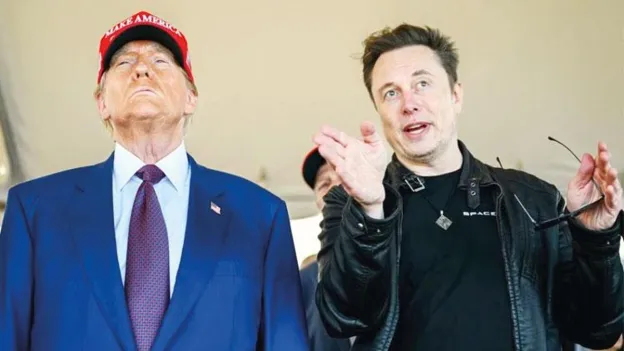
Elon Musk Stirs Controversy in Both the US and Germany

us, germany - Businessman Elon Musk, a close ally of US President-elect Trump, has sparked debates in both the US and Germany with his recent statements.
Businessman Elon Musk, a close ally of US President-elect Trump, has sparked debates in both the US and Germany with his recent statements. In the US, where Donald Trump will take office on January 20, the billionaire has caused political controversies with his statements supporting skilled immigrant intake in the country through the H-1B visa program. On the other hand, in Germany, where the far-right Alternative for Germany (AfD) party is gearing up for early elections, Musk's article on Die Welt claiming that AfD might be the 'last hope for Germany' has received significant backlash.
In the US, Musk defended the H-1B visa status, which allows American companies to employ foreign workers with specialized skills. He highlighted the shortage of expertise in technology companies in the US that cannot be filled by 'local talent'. Former White House Adviser Steve Bannon and other prominent Republicans criticized Musk for his views on immigration, labeling it as a threat to Western civilization. In response, Musk suspended the X accounts of some Republicans who reacted negatively to his statements.
Trump, who tightened restrictions on foreign worker visas during his first presidential term, expressed his support for Musk. In an interview with the American New York Post, Trump stated, 'I have many H-1B visa holders in my properties. I believe in H-1B. I've tried it many times. It's a great program.' The H-1B visa, given to skilled foreign workers who are not American citizens, provides the opportunity to obtain a green card after three years.
Last week, Musk faced backlash for stating that 'only the far-right party AfD can save Germany'. In response, he penned an article in Die Welt criticizing the economic challenges faced by Germany under the leadership of Olaf Scholz, attributing them to the government's anti-nuclear stance, cumbersome bureaucracy, and tax policies. Musk also defended AfD leader Alice Wiedel, stating that perceiving her as if she were Nazi dictator Hitler despite being an immigrant and homosexual is wrong.
Following Musk's article, Eva Marie Kogel, the Head of the Opinion Department at Die Welt, resigned, and several figures from German politics criticized the American billionaire. SPD General Secretary Matthias Miersch stated that it is unacceptable for foreign billionaires to support parties that undermine democratic values, deeming Musk's actions as an 'external intervention' in Germany. The Green party's federal parliamentarian and campaign manager Andreas Audretsch accused technology billionaires or Chinese state-owned companies of trying to undermine democratic rhetoric with their platforms and significant funds.


Leave a comment